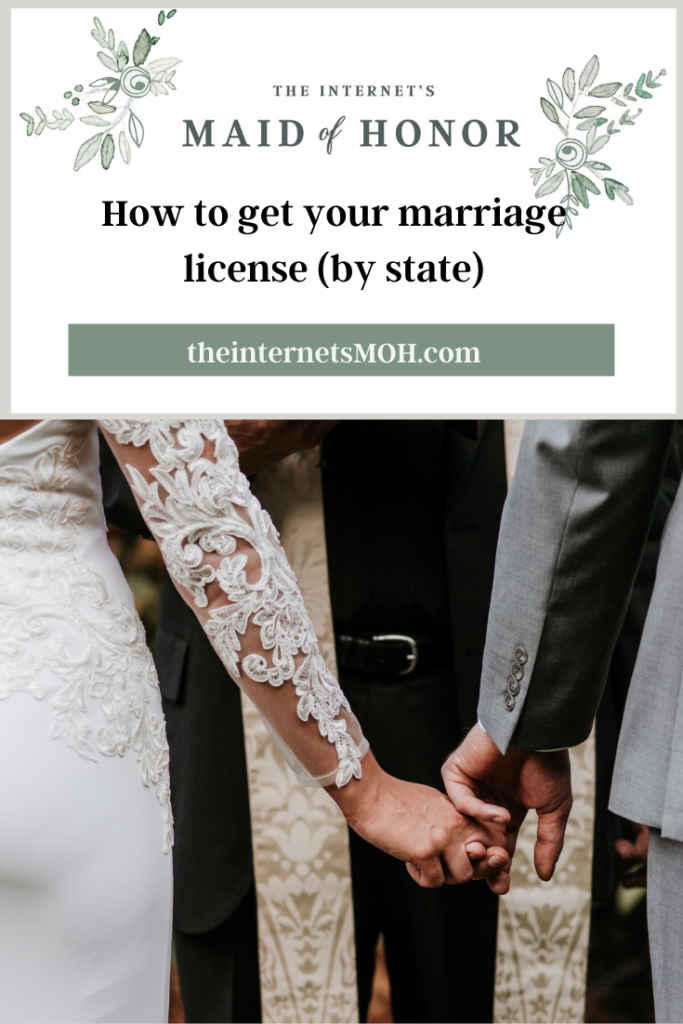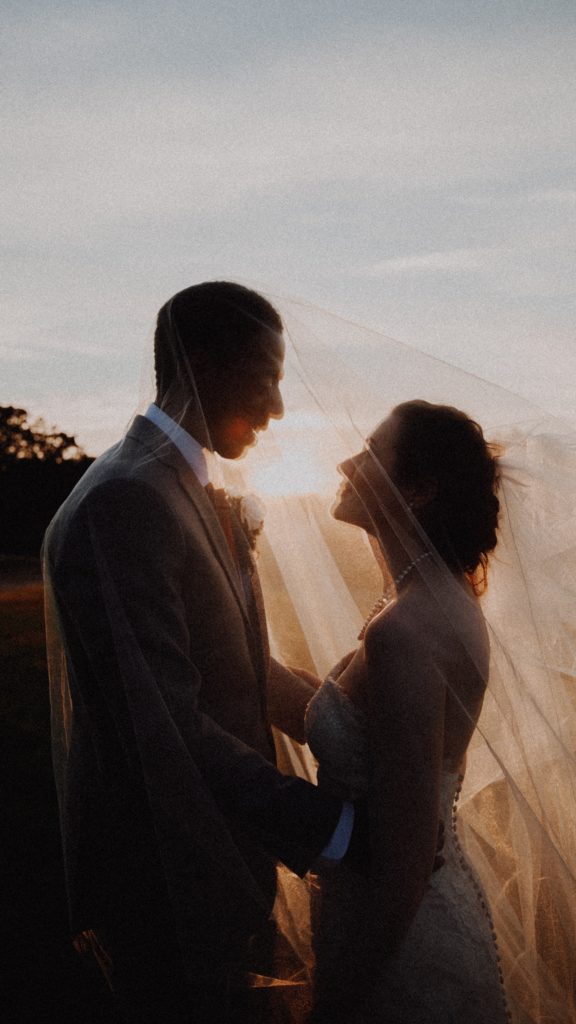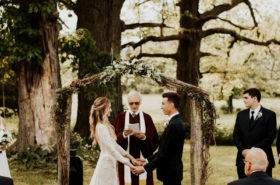Once you remember that you have to get married legally, you’ll have a slew of questions. By the way, I easily could’ve forgotten that with everything else that was going on in the planning process. I wanted to put together a thorough resource that will help you keep the legality straight and figure out exactly what you need to do.
Below are the basic steps you need to take to apply for a marriage license (the first step in getting it legally recognized). Please know that all cities, counties, states are different so finding out the specific rules is important.
- Most states do not require you to be a resident to get married there. The exceptions are Georgia, Indiana, Michigan, Montana, Ohio, Rhode Island, Vermont, West Virginia and Wisconsin. Read more about their stipulations here.
- A marriage license from one state is recognized by all other states.
- The waiting period between applying for a marriage license and getting married can range from 0-6 days depending on the state.
- The waiting period between receiving your marriage license and getting married can range from 0-6 days depending on the state.
- There’s something called a “proxy marriage” when one or both of the spouses cannot appear. Only 4 states allow this and with only 1 proxy stand-in.
- There are requirements for wedding officiants, so make sure yours is legal.
- Most states require both spouses, along with the person who officiated and one or two witnesses age 18 or older, to sign the marriage certificate. Don’t forget to do this at the wedding! Usually a wedding planner will make sure this happens, but if you don’t have one… I’d recommend delegating this task to a family member.
- Marriage licenses expire at different rates depending on the state. Some never expire, but the general range is 10 days – 1 year.
Please note that all of this information can change and become outdated, so be sure to call your clerk’s office or do ample research.
1. Figure out what zip code you’re getting married in and plug it into this website.
You can also search by city, but best to know the exact county you’re getting married in, in case that changes things.

2. Find out how much it costs.
The range for wedding licenses is between $60- $115, so double check to see how much it costs in your county. You can also see if there’s a discount for premarital counseling. Some states take substantial amounts off if you just show a certificate stating you’ve completed that.
3. Find the address of where you need to go to get your license.
Check the dates and hours of operation, and schedule time with your fiancé to go get ‘er done. Like any government office outing, your best bet is to try and go during a time frame where other people are working. Otherwise, you may be waiting in line depending on the size of your county.
Personally, I would avoid before 9am, between 11:30am- 1:30pm and near closing time. We waited 5 minutes by going at a weird time. You can also see if you can schedule an appointment or if you just have to walk-in.

4. Find out what the waiting period is for your state so you know when to get your license by.
States have different time frames for when 1) the wedding license application is accepted and 2) when the license expires. You’ll need to know both to make sure you apply for a license at the right time in order to have it present for the wedding officiant to sign and to make sure it’s not invalid by the wedding date.
Waiting periods for applications can depend on numerous things such as whether or not you’re a resident of where you’re getting married, whether or not you completed a premarital course, etc. Just be careful when you’re looking into that, so you don’t assume incorrectly.
5. Find out what you need to bring with you.
Here are the possible things they’ll ask for:
- premarital counseling completion certificate
- a blood test (rare, but possible)
- current drivers licenses
- state-issued identification cards
- birth certificates
- passports
- military ID’s
- alien registration card
- social security number OR
- social security card
- parental consent depending on age
- divorce decree if applicable
- death certificate if applicable

6. Make sure you know how to get the license completed on your wedding day.
When you apply for your license make sure you’re clear on what you need to do on your wedding day to get the license completed. Most likely, both your fiancé and you as well as the officiant and two witnesses will need to sign it.

6. Send it back in, and await the return of a certified copy.
You’ll also have to send it back in to make it official, so see what your state requires for that (and whether it’s you or the officiant that needs to take care of it), and maybe make a copy to keep at home in case it somehow gets lost in the mail… Make sure you send it back before it goes invalid!
Last little nugget of info: for some states you can start the name-change process while applying for a wedding license, but for others it’s a completely new process. Just know whether or not you want to do that going in, and go from there.



